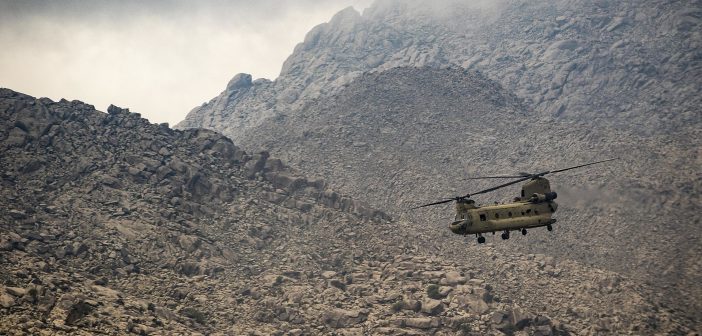Today the Taliban has re-entered Kabul, almost twenty years since the US-led intervention in 2001 drove it out. The US-trained Afghan army has melted away despite numerical superiority and a new Taliban government will no doubt emerge in short order.
The US-led war on Afghanistan has been an unmitigated failure. President Biden has conceded that after nearly 20 years of war it was clear that the US military could not transform Afghanistan into a modern, stable democracy. In fact, they created a corrupt puppet regime with negligible popular support. The truth is, the US should not have been there attempting regime change in the first place.
So let’s name the US/NATO departure from Afghanistan for what it is: a humiliating defeat after twenty years of war, regime change, occupation and brutality. According to the Brown University Costs of War study, this war has resulted in over 240,000 deaths, and countless more injured, displaced, suffering from mental health problems, and with lives blighted by poverty and deprivation. A relaxation of US rules governing air strikes in 2017 has led to a massive increase in civilian deaths in recent years, and unexploded ordinance continues to kill, injure and maim.
The monetary cost of the war has been phenomenal. The US alone has spent over $2.26 trillion to date, and that excludes future costs of interest payable on money borrowed to wage the war, as well as lifetime care for US veterans of this war.
And after all this expenditure of blood and treasure, Afghanistan is still one of the poorest countries in the world. Around 50% live in poverty and the poorest areas, largely rural, are those where the Taliban is strongest. The population needs clean water, electricity, infrastructure, yet the so-called aid money that has gone to Afghanistan has largely been used to train Afghan troops or been siphoned off by corrupt members of the Afghan elite.
One of the tragic human consequences has been the millions of people displaced or living as refugees outside of the country because of the violence and danger that they face. The United Nations High Commissioner for Refugees reports that 2.7 million Afghans have already been displaced this year because of the violence, and warns of “a looming humanitarian crisis in Afghanistan as the escalating conflict brings increased human suffering and civilian displacement”. The UK was complicit in this war, the UK helped create this humanitarian disaster and the UK must not send refugees back to Afghanistan. It is not a safe country to return to and will not be so for years, perhaps decades to come. The time has come to look at priorities – just a fraction of the money spent on military intervention in Afghanistan would make an enormous difference to Afghanistan and its future; reparations must be made, to support growth, to rebuild infrastructure and diversify agriculture away from opium growing. Twenty years of ‘nation building’ by the US and its allies have failed to eradicate the opium trade, or provide clean water and electricity for all.
It gives me no pleasure to say that what has happened in Afghanistan is exactly what the anti-war movement foretold in 2001 and that today’s humanitarian catastrophe is a direct result of the political choices of Bush and Blair at that time. After the attacks of 9/11, the US pursued regime change in Afghanistan. They got involved in a long-running civil war by backing the Northern Alliance against the Taliban, intending to install a friendly puppet regime. But they clearly had not read their history books. Foreign forces with their own agenda trying to impose an unpopular government on another country never ends well, as centuries of colonial history demonstrates. Every people wants to determine its own destiny not have it decided by war criminals in the White House or 10 Downing Street, those who saw themselves as gods to decide the fate of millions. Maybe Blair didn’t look at the history of UK intervention in Afghanistan. Maybe Bush didn’t reflect on the lessons of the Vietnam war. Now, 20 years on, it’s time to acknowledge that US and NATO forces should never have been in Afghanistan. The new propaganda developing in the media, that the withdrawal is a mistake and may lead to further terrorist attacks in the west, is wholly to be rejected and condemned.
It is political and military intervention over decades, if not centuries, that has given rise to these problems, in Afghanistan and internationally. This was widely recognised after the Iraq war and there can be no going back to a rehabilitation of the notion of western intervention being driven by humanitarian concerns. Blair’s concept of ‘humanitarian intervention’ has been roundly trashed: it was never any more than window dressing for regime change in the interests of western powers. It’s time to stop seeing Afghanistan as a pawn on a big strategic chessboard, the Great Game of former times. The challenges facing Afghanistan may seem insurmountable, but in large part they have been brought about by the US and NATO and they cannot be part of the solution. The truth is, military intervention has been a disaster and it offers no prospects for the future.
This article was first published here

